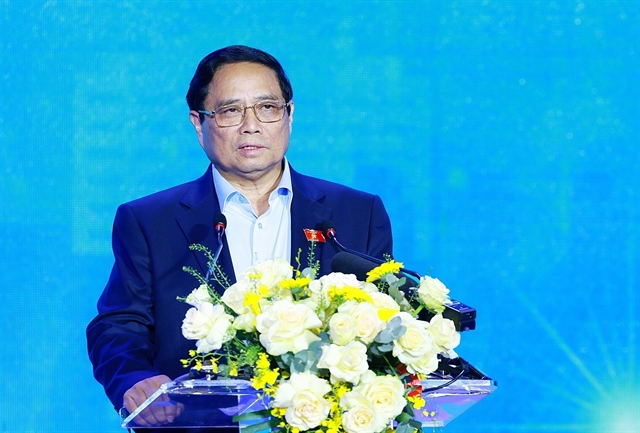HÀ NỘI — Each individual and business should be well aware of the benefits brought about by developing resident data, electronic identification and authentication for national digital transformation, said Prime Minister Phạm Minh Chính.
Addressing a hybrid conference reviewing the implementation of Project 06 in Hà Nội, the PM, also head of the National Committee for Digital Transformation, called the awareness work a decisive factor in this regard, saying communications activities should be held in various forms through the media.
Project 06 focuses on developing the application of population data, e-identification and authentication for national digital transformation 2022-2025 period, with a vision to 2030 (Project 06).
Digital transformation is an objective requirement and an inevitable trend globally in the context of the Fourth Industrial Revolution, he said, stressing it has been present in the daily activities of each person and each family.
The leader noted that Việt Nam regards digital transformation as a strategic choice and a top priority for rapid, sustainable development, and called on ministries, agencies, localities and the entire society to join hands in spurring socio-economic development based on digital transformation, science-technology, innovation and startup.
He described the project as a highlight and a key task of national digital transformation over the past two years, with Hà Nội and HCM City tapped for the pilot implementation.
The Party Committee, People’s Committee, departments and agencies in Hà Nội have taken drastic and concerted actions and created positive changes, the PM said, pointing to tasks for the city in the time ahead.
Hà Nội should be the pioneer in the Fourth Industrial Revolution, national digital transformation, and the development of the green economy, circular economy, digital economy, digital society, and digital citizens, towards a civilised, modern society, he said.
PM Chính asked the capital city to closely follow major tasks set for this year under the project, including consolidating technology infrastructure, digitalisation, and sharing data in service of the building of digital government, digital economy, digital society and digital citizens.


